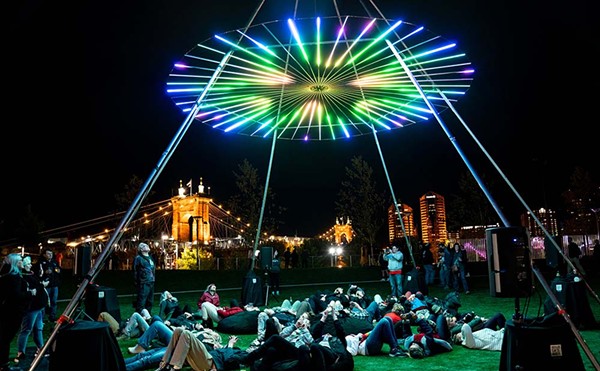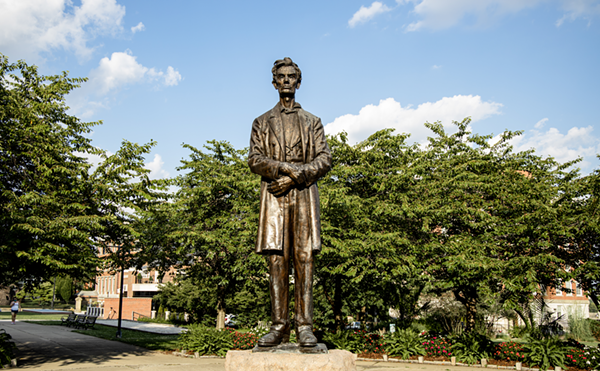On June 28, 1969, New York City gay bar the Stonewall Inn was raided by police. It wasn’t the first time that police had targeted the bar, but this was the first time the community there launched immediate demonstrations against the discrimination, social oppression and police brutality. Now known as the Stonewall Riots, the landmark event — celebrating its 50th anniversary this year — is widely hailed as the most important moment in the modern fight for LGBTQ rights.
But history runs deep. Looking beyond Stonewall, the fight for LGBTQ rights raged — and still rages — on. Charles Kaiser chronicles this history in his book The Gay Metropolis: The Landmark History of Gay Life in America. Kaiser will be at downtown’s Mercantile Library June 19 to discuss and read from the book.
First published in 1997, he has updated The Gay Metropolis for the third time for 50th anniversary of Stonewall. Organized by decade, it winds through modern LGBTQ history, starting with the 1940s and World War II, weaving through Stonewall and the AIDS epidemic, all the way to the present day.
Updated for a second edition in 2007, Kaiser appeared on Comedy Central’s The Colbert Report, where he explained why he started his account in the 1940s: “The United States Army is the great unwitting secret engine of gay liberation in 1940 because all of these people are drafted and they come from little towns and villages where they think they’re the only gay person,” Kaiser said, “and they discover that, actually, there are quite a few other people like them.”
In the time since, when it comes to LGBTQ individuals, visibility has completely transformed, Kaiser tells me in a recent phone interview.
“In the 1950s there were approximately three openly gay public figures in America: James Baldwin, Allen Ginsberg and sort of Gore Vidal — although he never described himself as gay,” Kaiser says. “But there were no openly gay people really in any profession to seek out before the 1970s.”
He points to the issue of The New York Times Magazine from January 17, 1971, titled “What it Means to Be Homosexual.” In the cover story, journalist and novelist Merle Miller came out as gay. Back then, such a public declaration was basically unheard of.
“The reactions he got by mail were from doctors who said that if they emulated him, they would lose all their patients,” Kaiser says, “and from lawyers who said they would lose all their practices and even Broadway producers who said they would no longer be able to raise money if anyone knew that they were gay Broadway producers.”
Today, scroll through social media feeds and these “coming out” stories are widely shared by celebs and non-celebs alike.
In part, Kaiser decided to revisit The Gay Metropolis for a third time because, as he puts it, there has been more legal and cultural progress in the last 12 years than there was in the first 30 years of the movement.
“I wanted to deal with marriage equality,” he says. “And I wanted to deal with (media) like Brokeback Mountain and Moonlight.”
He says he feels unbelievably lucky to have been alive in a time where LGBTQ people have made progress throughout their lives.
“In my 30s, when the AIDS epidemic hit, it was the most horrendous experience that you could imagine watching half of my gay friends succumb to this ghastly disease,” he says. “But even though it was ghastly to live through, it strengthened the movement in ways that nothing less than this catastrophe could have accomplished. It really forced us to be much more organized and much more united.”
The epidemic also humanized and created sympathy for gay people in a way that had not existed before with straight America, he says.
But in this modern era, he also points to setbacks. In the book he mentions a former President Obama quote: “For every two steps forward, it often feels we take one step back.” In reference to rollbacks via the Trump administration, Kaiser calls it “the greatest threat to democracy and personal liberty in (his) lifetime.” He cites the recent ban on transgender soldiers and sailors in the military, which went into effect this spring. He also points to a number of appointed federal judges who aren’t in favor of LGBTQ and other minority rights.
“There’s a lot of work to be done,” he says. “But as I think we proved in the most recent election in 2018, the decent people of America are in the majority.”
And that majority, he says, needs to get out, organize and vote.
The Gay Metropolis: An Evening with Charles Kaiser takes place at The Mercantile Library from 6-8 p.m. June 19. More info: mercantilelibrary.com.







